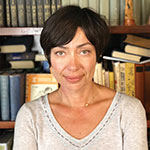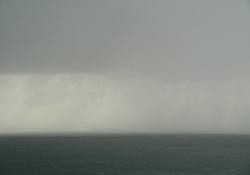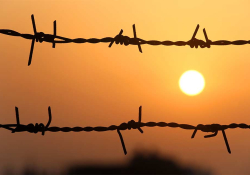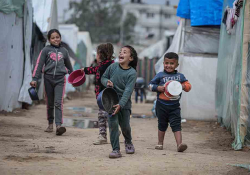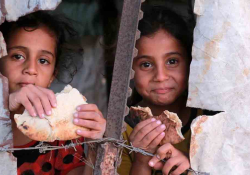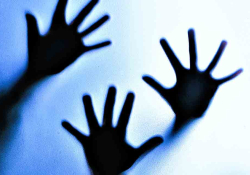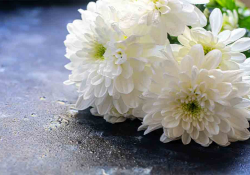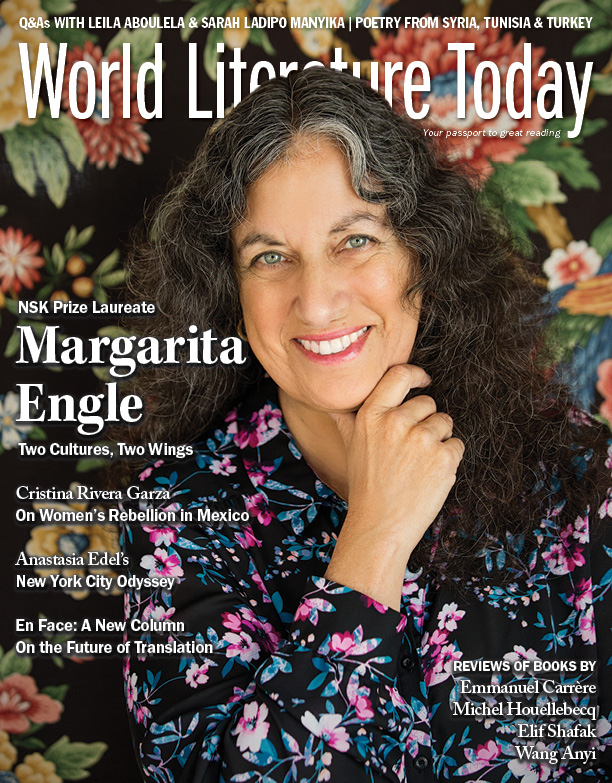Therapy by Living
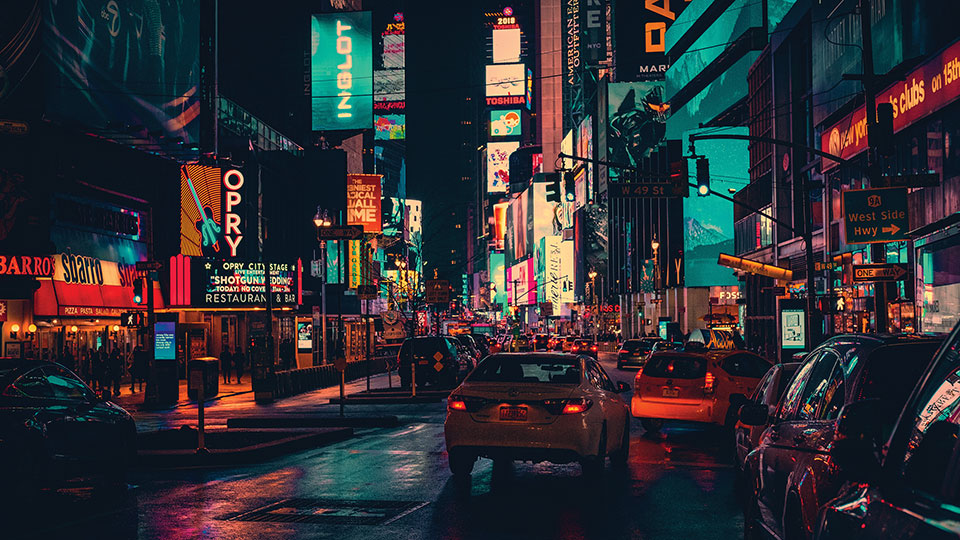
Follow a writer-flâneuse on a New York City odyssey, appreciating life’s smaller miracles in a city with many entry points.
West 32nd / Broadway. The hotel doors shut noiselessly behind. Crumbling snow, brown dirt, rubber boots, shovels. I’m the only one who waits for green. Straight lines, right angles. Grid. Men and women flee cell to cell as if afraid the night will catch them shelterless. Garment District, bags and watches, bags and watches, bags and watches. Puffy jackets, bristling chins. Steam rising from the water hoses. 29th, 28th, 27th, 26th. Puddles, rivers, streams. Curl your toes. Wrap your scarf. Play with your cape, on-off, on-off. Zigzag for dry land. Think of coffee.
Madison and Fifth, Flatiron, triangle of shadow on the square. Scaffoldings. Lavazza cups behind the glass. Walk in, order a single shot. Drink, pine for Rome, order a double. Venture deeper inside and get lost in sweets, wines, breads, oils, cheeses, sodas. What is this place? Raw meats, cured meats, roasted meats. Pasta, crushed tomatoes, truffle salt, crawfish on ice, red perches with glassy eyes, lamb on a spit, lamb chopped by a gleaming cleaver knife. Limoncello biscuits, Amarena cherry syrup, Strega nougat, sugared almonds—pink, lime-green, yellow, light blue . . . Orange peel in bitter chocolate. Pick a box. Cringe at the price. Fiddle with your wallet. Agree to giftwrap. Pick scarlet color for the ribbon. Snip, snip. Sharp scissors trim the edges. “Come back to Eataly.” Arrivederci, Roma.
Run down the steps, hop on the Brooklyn train, find your stop on the map. Watch the yellow light as you traverse the grid. Count eight stops. Get out into snowdrifts and puddles. Red brick, graffiti, heavy metal doors. Knock-knock. Privet! Ashtrays on the staircase, clothes on hangers, unmade futon beds, thick mended sweaters. Shy smiles of the newly arrived. Male portraits on the walls, bodies naked as souls. Photographs, postcards, emulsion lift-ups, Polaroid shots, coffee, cigarettes, tea albums. “Asylum.” “Refugees.” “Call next time you’re in town.”
Back on the subway, up the grid. Check email, accept its silence, make new plans. Remind yourself today is not about goals. Get out at 96th Street. Walk in the wrong direction, turn around, head for the trees. Cross Park, cross Lexington, walk toward Fifth. White-gloved doormen, green awnings. An elderly couple: black coat gold-rimmed glasses (he); salt-and-pepper hair, Yoko Ono eyes (she). If John were alive, it could have been them. Cross Fifth, turn left. Walk up to the Met’s entrance. Check in your coat and your sweater; leave on the beret and the scarf. Roman copies, Greek originals, Picasso, Miró, Monet, Manet, Rubens, El Greco, Caravaggio. Botticelli. Glimmers of eternity. Skip modern art; feel no regrets. Wander. Finish a chocolate bar by the Egyptian tomb. “Museum now closed.”
Check email. Watch the phone die. Try not to panic. Study a paper map on the steps in the dusk. Ditch the subway. Walk slowly across the park’s white slopes.
Silent trees, pale streetlamps. White lab sniffs a hole eaten by the sun inside a snowdrift. Solitary runners. Discreetly look around. Believe in your inner navigator. At last, bump into a manned park cart. Pretend like you have a destination. Ask for directions. Pretend to know where “west” is. Meander and ramble, listen to the silence of a giant city, watch the neon lights reflect off the polished darkness of a frozen lake. Keep moving, reach the exit, check the street name. “Central Park West.” Give yourself a mental pat on the back.
Meander and ramble, listen to the silence of a giant city, watch the neon lights reflect off the polished darkness of a frozen lake.
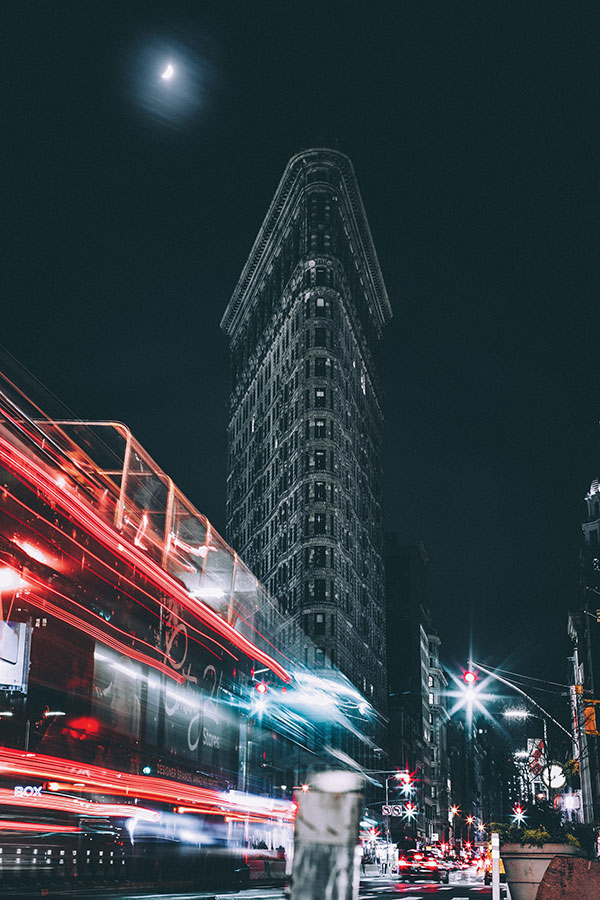
Columbus Avenue. Skyscrapers’ lights ahead twinkle like beacons. A bakery with expensive rustic tables. Smell of fresh dough and chocolate. A plug. Check email again; shrug. Remain unnoticed, unplug, exit. 75th, 74th, 73rd, 72nd. Behind the glass, a tattooed girl in platform boots cuts platinum hair. Button your coat. Pull down on your beret. Walk. Walk. Walk.
Juilliard, Philharmonic, City Ballet. White arches of the Lincoln Center. A woman with a bouquet of dry branches looks at me. “Tonight’s performance: Cavalleria Rusticana and Pagliacci. Two for one. Why not?
Just one, I say. My first time at the Met.
He looks at me, bends over the keyboard. “A student? Maybe?”
Maybe. I listen to the clicking of the keyboard. What if it’s five hundred? Three hundred?
“Thirty-seven dollars.”
Swipe. Sign. Glance at the tickets.
Orchestra, Row OO. $37.00. Met. Pagliacci. Me.
Appreciate life’s smaller miracles. Smile. Get a smile back. Experience a sharp pang of belonging. Ask for the start time of the second opera. Feel no judgment. Hurry outside.
Down the stairs, Line 1 Downtown. Count four stops, get off the train, walk, jog, run. Get through revolving doors, go past the lobby’s golden tree. Soar up. Away with the self-effacing pastels, on with black and red. Makeup, hairbrush, perfume. Plug the phone. Leave it behind.
Embrace your weaknesses. Choose dinner over Cavalleria Rusticana. In the downstairs bar, ask for martini. Taste blueberries in vodka. Eavesdrop on French talk to your right, German to your left. Think in your native Russian. Order salade niçoise. Pine for Koreatown’s noodles a block down. Sip. Eat. Finish every crusted pink rectangle, every egg half, every vinaigrette-drenched leaf, and every squeaky bean. Charge it to the room. Check the time. Leave.
Get sucked into Korean souvenirs. Creams, blushes, promises of endless youth, books, diaries, calendars. Allure of otherness. Buy a panda-shaped perfume stick, a pencil with orange hieroglyphs, two silver bookmarks with a lotus flower woven of red string. Extricate yourself. Run down to Penn–Herald. Uptown now. 42nd, 47th, 7th, Columbus Circle. Follow a well-dressed couple to the Lincoln Center. Be not afraid to walk alone. The plaza steps light up with foreign words beneath my feet: Bienvenido. Welcome. Willkommen. No Russian. No matter.
Be not afraid to walk alone.
Fifteen minutes to the end of Rusticana. Opera store—scarlet pouches, monocles, wind-up music boxes, silk fans, cufflinks, magenta scarves, cashmere on hangers, piano keys on lids, coasters, sachets. Buy a Carmen coaster, exit. Return, buy an eyeglass case with a chandelier silkscreened in gold and black. Walk under its crystal prototype in the lobby. Run three flights up the steps of scarlet velvet. Order for the intermission. Run all the way down, count flights, check your coat, turn left by the fountain, find the latecomers’ screen. A man in a tuxedo snoozes on the couch; another one dies on the screen. Regret missing act 1. Remind yourself that “Maro Azul” was art, too.
Curtain down, bravo, bis. Slowly now, up the velvet staircase. Mink coats, velvet cloaks, deep slits in the front, side, back. Pumps, bowties, jeans, tuxedoes, sneakers, sweaters. Camera flashes. What a voice! What a set! In the café, a table set for one. “Enjoy.” A champagne flute with strings of trembling golden bubbles. Three fragile balls of bitter chocolate and wafers, toasted hazelnuts on top. Prime view of the staircase.
Follow the gentle summons of an usher’s xylophone. Feel the flush in your cheeks. Cling to inexplicable happiness.
A sip, a bite, a sip, a bite. Look outside, at the lit-up fountain. Scan the program, brush up on libretto. Listen to Leoncavallo’s passages in your head. Crunch into the last hazelnut ball. Drink the last of the golden bubbles. Follow the gentle summons of an usher’s xylophone. Feel the flush in your cheeks. Cling to inexplicable happiness. Start walking downstairs.
RR, QQ, PP, OO. Seat 34, center. A graying updo on my right, a monocle, an absence of a smile. I do not seek it. I am happy as I am. Blue curtain, silver stars. Conductor’s baton flying up. Tonio sings of feelings. Embraces, kisses, stylized dresses. Ford’s truck. A real horse (“This is Met!”). Love oaths, curses sung in baritones, sopranos, basses. Neddha rocks a sparkling bodice in a rare unity of form and substance. A bloodied dagger. Fallen bodies. La commedia è finita. We stand. We shout. My fingers tingle as I clap.
Postshow gossip. Regular complaints (my ear picks up on Russian speech instinctively). “Not a Bolshoi,” “no dress code,” “horse not white.” I smile with Western nonchalance. Behind the coat check, a portrait of a famed soprano in Botticelli’s blues and gold, decades earlier. I think of Venus. Of the transience of everything, except for notes, brushstrokes, lines . . . I trade a piece of round plastic for my coat. The day is almost over.
59th, 42nd, 34th Street–Penn. Tracks, kiosks, tickets, crowds, ever-present smell of coffee. Night poses as day. A Broadway star projected on the station’s steps; a giant billboard flashing “TIME” in cool galactic bursts. Puddles, snow patches, mountains of trash. Ridi, Pagliaccio. 34th, 32nd, Greeley Square, yellow cabs. Greens change to reds and reds to greens. A piercing siren of an ambulance. This place!, I think. So viciously alive you want to weave yourself into its fabric.
A square hotel mat, a whiff of smoke, a porter’s smile, an open door. I linger. Inside await the golden tree, the elevator up, the bed. The phone. Yet on the street, young faces, loud voices, laughter . . . Step back. The porter shrugs and opens the door for someone else. I walk ahead.
Packed coffee shop with muffins, scones, macaroons. Want a morning? Come and get it. Another shop—with tofu bowls, combo platters, dumplings . . . I think of tuna niçoise, the profiteroles, chocolate, champagne . . . Still, I am caving in. I pick the menu, long as a scroll. But then—We’ve closed. No irritation or regret in waiter’s voice; a mere statement of the fact. All right, I tell myself. Not meant to be. Extravagance is not a virtue. Across the street, a neon sign: three letters—P-H-O—next to the steaming bowl. Smaller letters underneath it. “24 hours. Open.”
I cross on red. The taxi driver doesn’t beep. Inside, a dozen tables in a single file, red tablecloths, trios of the sauces. A couple chatting in the back. Hushed laughter coming from behind the screen. Familiar neutrality in waiter’s eyes. My urges for Vietnamese food at midnight are my business.
A taste, I tell myself. A bite. Mild eurotechno music playing. Nine dollars isn’t much for staying on the grid a little longer. It’s hot. Coat off? Too dressed up for noodles? Silence, inner censor. My eyes trace entries on the laminated sheet. Beef? Chicken? Maybe go lean? It’s midnight . . . I ask the waiter for his favorite. He points. Okay, I tell him. “Everything.”
Brisket, flank, soft tendon, tripe. A swirl of hoisin. Chili paste. A dab of I-don’t-know-what. Lime, squeezed. Bean sprouts and cilantro, drowned. Stick in the chopsticks, mix, inhale. Spoon the broth; fish out the brisket from the slick, elusive noodles. Love every bite. Get bolder. Maul over the soft and glutinous. Play with the sauces. Chew into the noodles. This is no “bite,” but let it go. Revel in therapy by living.
First eat the meat, then drink the broth, crunch on the sprouts, suck in every noodle. Be not ashamed.
First eat the meat, then drink the broth, crunch on the sprouts, suck in every noodle. Be not ashamed. Pay cash, get dressed, get outside. A laughing girl asks someone for a light. “How was the audition?—Oh, which one?” Absorb the voices, laughter, swishing of the tires. Inch toward the hotel door. Five hours ahead—a wake-up call, a taxi ride, a plane, return; today already morphed into tomorrow. I take one final look before I leave the grid behind, those shifting boundaries, pulsation of desires. I thank this city for its many entry points, for elevators, trains, cars, stairs. For my invisibility. For the suspension of its judgment. The porter holds the door and waits. This time, I nod and disappear.
San Francisco
